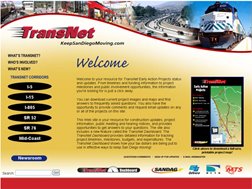Submitted by Paul EllisTo some observers (most notably
Mary Margaret Haugen, current chair for the WA Senate's Transportation Committee), the only list longer than that of the critical transportation projects awaiting funding is the list of agencies empowered to direct transportation funds. Senator Haugen and other leading Legislators believe that this is no coincidence; in other words, that the plethora of agencies (from
FMSIB to
TIB) with their own funding "silos" and separate agendas is a big share of the problem. We can probably all agree that entering the world of transportation funding can resemble entering Alice's side of the looking glass, a place where alphabet letters conspire to upset the Mad Hatter's tea--it's part of the rationale behind starting this blog, in fact.
The WA Legislature's solution to this modern voyage through the looking glass is the Regional Transportation Commission (RTC), which was formed last Session to "develop a proposal for a regional transportation governing entity more directly accountable to the public, and to develop a comprehensive regional transportation finance plan for the citizens of the Puget Sound metropolitan region.”
Norm Rice and
John Stanton have been appointed to co-chair the commission.
Dan McDonald and
Mary Gates from King County, and Gigi Burke from Snohomish County were also appointed to the commission; an appointee from Kitsap County has yet to be confirmed.
Dave Johnson and RAMP Co-chair Tim Farrell are representing Pierce County on the RTC.
The RTC's mission is multi-faceted, including goals to:
- Consolidate governance among agencies, including changes in institutional powers, structures, and relationships and governance needed to improve accountability for transportation decisions, while enhancing the regional focus for transportation decisions and maintaining equity among citizens in the region;
- Improve coordination in the planning of transportation investments and services;
- Improve investment strategies
Thus far, most press coverage and public interest has been focused on the first goal listed above.
Expectations for positive change are running high in Olympia. “This commission needs to be forward thinking--I want them to consider our transportation needs in 2030, not only 2010,” said Governor Christine Gregoire in
announcing formation of the RTC. “I know that these recommendations will get mixed reviews, but I hope that everyone, including transit providers, local governments and the Department of Transportation will work with the commission to reach a solution that helps to fight traffic congestion in the Puget Sound region.”
The Commission is meeting with and hearing from transportation agencies in King, Pierce and Snohomish counties. The proposal to create a single transportation agency designed to make it easier to build roads and mass transit is
getting a cool reception in Snohomish County. Pierce County jurisdictions and agencies will get a chance to have their say at a hearing beginning at 9:00 this Thursday in the Port Business Center (3600 Port of Tacoma Rd.).
The Commission is scheduled to release its report and recommendations by November 15, which will be forwarded to the WA State Legislature for its next Session beginning in January, 2007.
Paul Ellis is lead staff for RAMP; an employee of the Tacoma-Pierce County Chamber, Ellis led the Pierce County Transportation Advisory Committee (PCTAC), the community’s largest transportation planning effort.
 Submitted by Paul Ellis
Submitted by Paul Ellis



